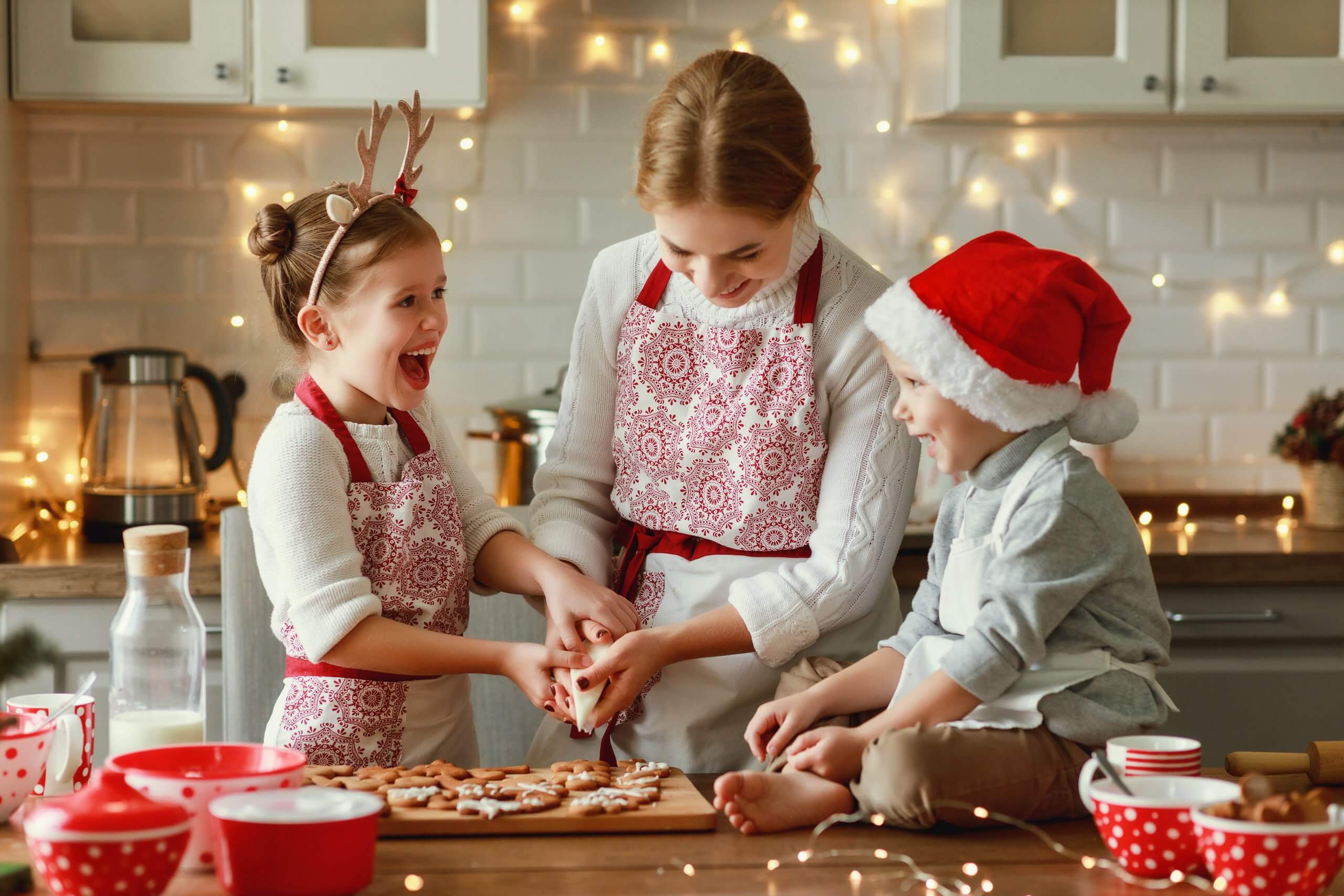Make Holiday Baking with Your Child a Success

FEATURED POSTS
January 27, 2026
December 30, 2025
December 15, 2025
The changing of routine, new decorations in the home, the influx of visitors, whether in-person or online—all of this makes the holidays a particularly challenging time for children with autism spectrum disorder (ASD). Add COVID-19 to the mix, and the complexity rises, with families everywhere navigating how to celebrate the holidays with new restrictions in place.
While it’s important to give your child a separate and quiet space to take time away from the noise and commotion, it’s also a good time to think of creative ways to include your child in preparing for and celebrating the holidays. Involving your child in cooking or baking is a great way to do this because you can customize the experience to target his or her specific interests, in addition to the specific skills on which you’re working. Likewise, you can adjust their participation to meet their abilities, without pushing too far.
Preparation
When planning what dish to make, simplicity is key. Use a recipe with manageable steps—and integrate your child’s interests in the process. You can do this both in content and appearance. For example, you can use recipes with their favorite ingredients or create a cookie that takes the shape of one of their interests, such as dinosaurs or flowers. Whether or not you have a cookie cutter in the form of a dinosaur or flower, you can use your hands and a dull knife to shape the dough into the overall form.
Preparing ahead to avoid your child’s aversions can go a long way, too. If a particular texture, smell, color, or sound distresses your child, choose a recipe that avoids them altogether, or provide items to help them cope—for instance, use gloves to avoid certain textures or headphones to soften the sound of the blender.
To break down challenges and find helpful adjustments, take a look at Cooking with Autism by Penny Gill, which is recommended and used by the Autism Awareness Center, Inc.
Finding the Right Approach for Your Child
The needs and preferences of each child with autism are unique, so make sure you consider these factors when deciding which tasks to assign your child in the kitchen. Below are two approaches you can choose from or adapt to best match your child’s abilities.
Maximizing ease, minimizing frustration
For children who generally require more accommodations, try to reduce complicated steps and the chance of overwhelm. Consider starting by showing your child a sample of what they’re making, like a batch or cookies already prepared so they can see the final product—and ultimately show more engagement in the cooking process. Instead of asking your child to find or measure ingredients, you can pre-measure all ingredients, and your child can simply add them into the recipe as you go. Alternatively, start with a batter you premix and have your child help set the recipe on its tray or pour it into the pan. That way, your child remains part of the cooking process, without having to go through the entire arduous experience.
Increasing participation and learning opportunities
Children who require less support can assist in more of the process. With guidance, they may be able to gather the ingredients themselves, measure the appropriate portions, and do the mixing. Start by walking your child through each step and reviewing the next step—this will help alleviate pressure so your child doesn’t become distressed or discouraged. Keep in mind that mistakes happen and provide an opportunity to show support and acceptance, while using creativity and problem-solving to find a solution.
With the right preparation, cooking and baking can be a fun and rewarding activity that allows you to bond with your child. In addition, cooking and baking introduce your child to basic and essential kitchen, math, and organizational skills, while providing a chance to work through sensory experiences in a safe (and hopefully tasty) way. As you embark on a cooking or baking project, don’t worry about the mess. Just savor the one-on-one time together—and the chance to taste and commemorate your hard work, as you ring in the holidays.






